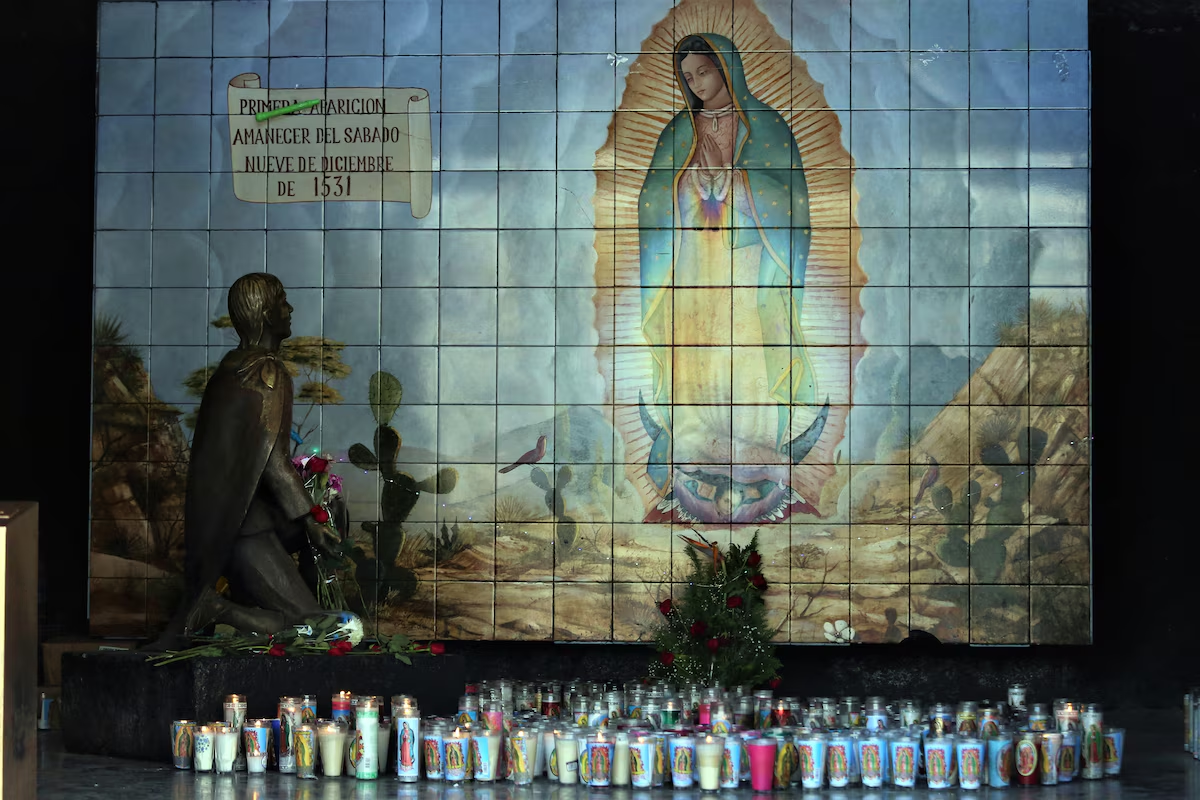| FRONT PAGE | NAYARIT NEWS | TRAVEL | HOME & LIVING | TRAVEL BUDDIES |
Catholic bishops meet with Mexico’s cartel bosses to plead for peace
 Citing a “profound crisis of violence and social disintegration,” Mexico’s Catholic bishops are staking out an aggressive new role in national security, going so far as to sit down with feuding drug traffickers in one blood-soaked state to hammer out a truce.
Citing a “profound crisis of violence and social disintegration,” Mexico’s Catholic bishops are staking out an aggressive new role in national security, going so far as to sit down with feuding drug traffickers in one blood-soaked state to hammer out a truce.
The church is also pressing for a change in the anti-crime strategy pursued by President Andrés Manuel López Obrador. Church leaders recently persuaded the candidates in the June 2 presidential election to sign a “National Commitment for Peace” that includes a lengthy list of proposed reforms, such as strengthening local police forces and making the justice system more professional and transparent.
Together, the initiatives amount to a new level of activism for a church that has largely stayed outside the political fray. Mexico is the world’s second-most-populous Catholic country, after Brazil. But its priests have historically been constrained by the anticlerical policies that took root during the 19th-century war of independence from Spain. Until the 1990s, it was illegal for priests even to wear their vestments in public.
![]() The church is acting now, Bishop Ramón Castro says, because it has received a torrent of complaints from parishioners who have suffered extortion, robbery and the disappearance of loved ones.
The church is acting now, Bishop Ramón Castro says, because it has received a torrent of complaints from parishioners who have suffered extortion, robbery and the disappearance of loved ones.
“We are witnessing incredible violence against our people,” Castro, the bishop of Cuernavaca, told The Washington Post. “This has moved the hearts of the pastors to do something — to not just stand there with our arms crossed.”
López Obrador, a longtime leftist, says the U.S.-backed war-on-drugs strategy adopted by his predecessors brought more violence to Mexico without reducing crime. While he has continued to rely on the army to fight drug traffickers, he has also promoted social programs aimed at deterring young people from joining criminal groups. He says the homicide rate has dropped to its lowest level since 2017.
Nonetheless, approximately 30,000 people are murdered per year, for a rate more than triple that in the United States. Criminal organizations that once focused on trafficking marijuana, cocaine and heroin have diversified into synthetic drugs such as fentanyl, as well as other illicit businesses, including gasoline theft and migrant smuggling. In hyperviolent states such as Guerrero in the south, heavily armed criminal groups control wide swaths of countryside and extort city dwellers ranging from bus drivers to taco vendors.
Clerics negotiate with cartel bosses
In late February, bishops in Guerrero brokered a truce between the Familia Michoacana and Tlacos crime groups. The gangs’ battles over territory had turned increasingly deadly, with 17 people killed in one massacre in the town of San Miguel Totolapan.
Mexico’s Catholic leaders had mediated in crises before — notably, after the uprising by Indigenous Zapatista rebels in 1994. But this time, the talks didn’t include the government.
“This is very unusual,” said Roberto Blancarte, an academic at the College of Mexico who studies the Catholic Church. The bishops “are intervening where they see a state incapable of doing so, a state that’s practically failed.”
In the month since the accord was reached, homicides in Guerrero dropped by 23 percent, according to the Milenio newspaper.
Bishops elsewhere have said that they, too, would be willing to meet with cartel bosses to decrease violence.
“It’s not the best thing,” said Castro, the bishop. “But if it’s necessary to save lives in an extreme case, I’ll do it.”
López Obrador expressed approval of the mediation in Guerrero. Church leaders, he said, “continually participate and help in the pacification of the country.”
A security officer stands outside a church in Urique, Mexico, on June 22, 2022, after the bodies of two Jesuit priests and a tour guide were found shot to death inside. (Anadolu Agency/Getty Images)
Mexico faces a threat of ‘criminal governance’
Relations between López Obrador and the Catholic hierarchy have deteriorated since 2022, when gunmen killed two Jesuit priests in a mountainous northern region plagued by drug violence.
The Mexican bishops, the Jesuit order and other Catholic leaders subsequently launched a “National Dialogue for Peace,” bringing together more than 20,000 people in forums to fashion a new security strategy.
Last month, church leaders asked the three presidential candidates to sign a summary of recommendations produced by those sessions. The document warned that the social fabric of Mexico was “in an accelerated process of disintegration,” and that alliances had sprung up between politicians, corrupt business people and criminals.
“Mexico is wavering between a model of criminal governance and a model of democratic governance” that is underdeveloped and precarious, the document said. It called for reforming the justice system to reduce impunity, strengthening municipal police forces and adopting long-term security strategies.
